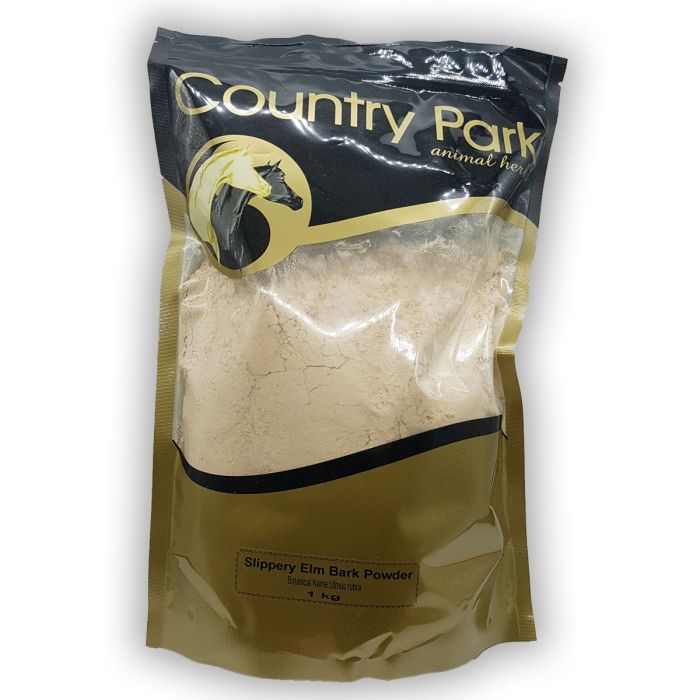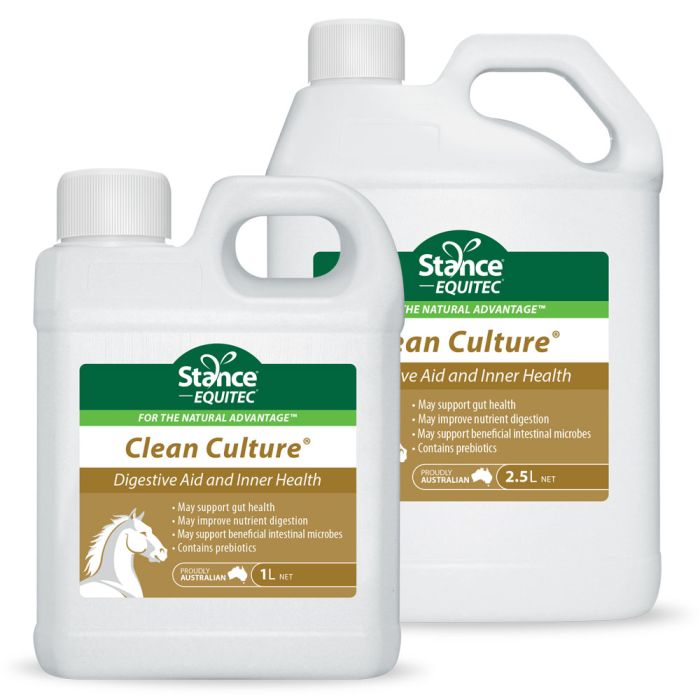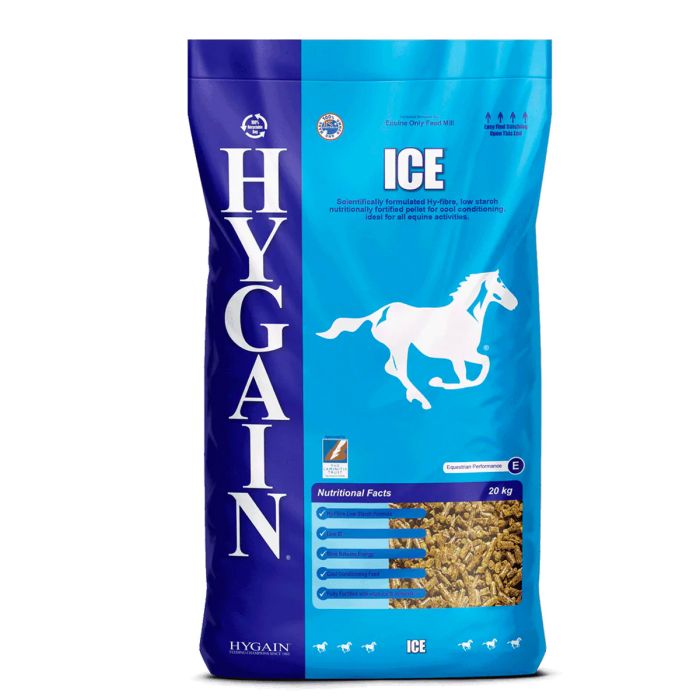Slippery Elm Bark Powder 1kg - Country Park
CP-slip1.0
Slippery Elm Bark Powder by Country Park.
Slippery Elm Bark Powder (Ulmus fulva/rubra)
Country Park
The finely powdered inner bark of the Red Elm tree, native to North America, has been used by indigenous people for many years and is now employed by both herbal and orthodox medicines. Slippery elm bark powder is pale pink-brown in colour and its distinctive mucilaginous (slimy and slippery) texture, when mixed with moisture, sees it applied to conditions where mucous membranes are irritated/inflamed. This includes membranes of the respiratory and urinary systems as well as the entire gastro-intestinal tract, including the throat and oesophagus.
For horses, slippery elm bark powder is most commonly used internally, to treat conditions such as scouring (diarrhoea) and gastric ulceration and as aftercare in some types of colic cases. It soothes and coats injured and inflamed tissues, helping them to heal and reducing the likelihood of scarring, as well as drawing out toxins and irritants. It can be added to a moist chaff/grain feed or combined with plain yoghurt (with live cultures) and/or honey, mashed banana or mashed pumpkin, and added to feed or syringed into the mouth.
Externally, the bark powder is used for poulticing wounds/injuries. Depending on the situation, it can be used by itself or combined with other herbs, and when it is moistened its soft, sticky, malleable consistency is helpful for moulding and applying poultices in difficult to bandage areas.
Slippery elm bark powder is widely acknowledged as safe and effective and can be used on horses of all ages, from foals to the aged. Follow recommended dosage rates and do not administer it simultaneously with other medications as its mucilaginous texture can interfere with their absorption.
ACTIONS include: demulcent and emollient (soothing and protecting membranes/surfaces), mildly astringent (having a binding or contracting effect on mucous membranes), nutritive.
© Country Park Animal Herbs



